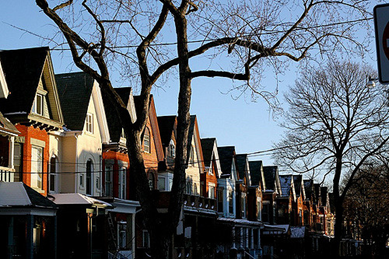These days it seems like you can’t turn on the news without hearing a story about another industry that’s being disrupted by a tech based competitor. Spotify has taken the music industry by storm, Über has revolutionized the way we get around and Netflix has changed the way we watch television and films. In the realm of hospitality, the biggest disruptor has been the massively successful company AirBnB.
The people who run AirBnB would like us all to believe that providing a platform for everyday people to rent out their properties on a short term agreement democratizes the tourism experience and industry. No doubt, there are many positive things about the peer to peer rental service; it is undeniably a tool for generating income in an economy that has floundered over the last decade. There are, however, a few glaring drawbacks to the online market-place for hospitality service:
- Short term rentals hurt the traditional hospitality service, which employs literally millions of people worldwide. Online travel agencies (OTAs) such as Hotwire and Expedia are making money exploiting the fact that so many hotels are desperately under-booked. Many hotels in today’s economy are going bankrupt from a dearth in bookings, largely owing to short-term rentals. Hotel owners are concerned about lack of regulation and culpability in the instance of companies like AirBnB, and rightly so.
- Because property owners can make so much money on quick turnovers and short term rentals, long term tenants who actually live and work in the cities in question are being forced out. This is tantamount to a whole new brand of gentrification in which the property owner can come across as comically villainous as they jack up the rent and try to force out tenants who they’ve begun to resent. It is because of these villains that new policies are quickly being implemented.
- The real estate industry itself is taking a hit over all this turmoil; by disrupting the natural markets for property sales and rentals, online market places for home sharing has reduced the number of houses that go up for sale in big cities where the housing markets have already reached saturation. Many real estate agents are turning to commission advances to stay afloat as the industry and markets begin to veer towards a course correction – learn how commission advances work if you are an agent in a tough spot.
This past week in Toronto, laws were passed limiting hosts on AirBnB to renting out no more than one property: their primary place of residence. While hotel owners are happy with this decision, along with the city’s hospitality workers’ union, actually enforcing the new policies is a whole other kettle of fish. In addition to the one host, one home rule, hosts will have to pay taxes and an annual fee – otherwise the money they make from short-term rentals might as well be money made from an illegal enterprise.
It seems as though this burgeoning industry is starting to move towards an accountable model that will satisfy everyone – or at least not piss so many people off. It’s a brave new world that we live in, and things are sure to get a whole lot stranger before we reach a new equilibrium.

